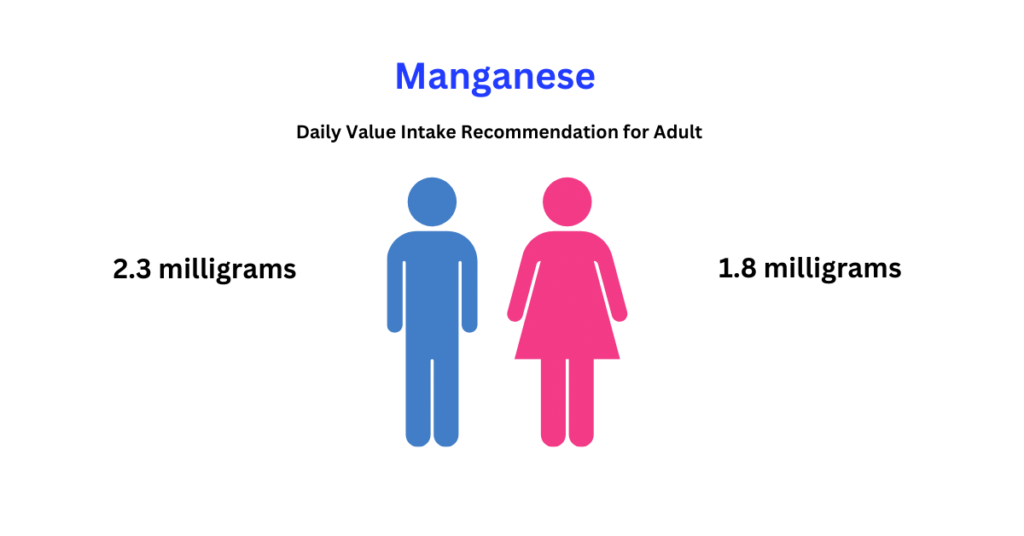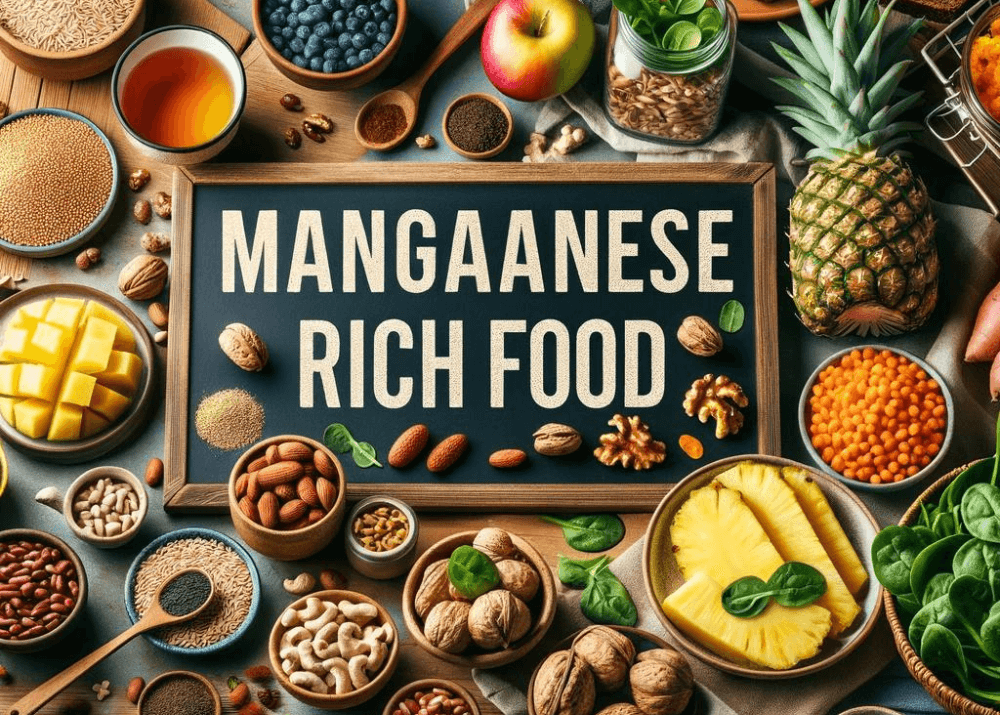Manganese is a pivotal trace mineral, integral to numerous physiological processes in our bodies. From aiding bone formation and metabolism to enhancing antioxidant defense, the importance of manganese cannot be overstated. Understanding and incorporating manganese-rich foods into your diet is key to harnessing the full range of manganese benefits. This approach not only promotes a balanced intake of manganese but also supports overall health and well-being. Whether it’s fortifying your bones, boosting your metabolism, or protecting your cells against oxidative stress, manganese is as crucial as it is multifaceted. Let’s explore how to optimize your health through the power of manganese.
Meeting Recommended Daily Intakes: Ensuring Adequate Manganese Supply
Ensuring you meet the recommended daily intake of manganese is essential for maintaining its optimal levels in the body. This crucial trace mineral, integral to bone health, metabolism, and antioxidant defense, requires a balanced diet. For adults, daily manganese intake should be around 2.3 milligrams for men and 1.8 milligrams for women, though these amounts can vary based on individual needs. Including a variety of manganese-rich foods, such as whole grains, nuts, leafy greens, and certain fruits, is the best way to achieve these recommendations. This not only helps in preventing manganese deficiency but also supports overall health and well-being.

Food Sources: Discovering Manganese-Rich Foods
Manganese is abundantly found in a variety of foods. Prioritizing these manganese-rich foods in your diet is a natural and effective way to meet your daily manganese requirements.
Here are the top 10 high sources with necessary measurements of RDA:
- Whole grains (e.g., brown rice, oats) (1/2 cup, cooked): Approximately 1.5-2.5 milligrams
- Nuts (e.g., hazelnuts, pecans) (1 ounce): Approximately 1.5-2 milligrams
- Spinach (1/2 cup, cooked): Approximately 0.9 milligrams
- Pineapple (1 cup, fresh): Approximately 1.5 milligrams
- Sweet potatoes (1 medium, cooked): Approximately 0.6 milligrams
- Black tea (1 cup, brewed): Approximately 0.5 milligrams
- Legumes (e.g., chickpeas, black beans) (1/2 cup, cooked): Approximately 0.4-0.6 milligrams
- Tofu (1/2 cup, prepared): Approximately 0.7 milligrams
- Brown bread (1 slice): Approximately 0.2-0.5 milligrams
Including these manganese-rich foods in your diet is a straightforward approach to ensure adequate manganese intake.
Manganese Deficiency and the Role of Supplements
While relatively rare, Manganese deficiency can have significant health implications, particularly for individuals with certain medical conditions that impede absorption. This trace mineral is crucial for bone health, metabolism, and antioxidant function. A deficiency can manifest in several ways, including weakened bones, slow wound healing, and changes in metabolism.
The most common cause of manganese deficiency is inadequate dietary intake, often exacerbated by specific gastrointestinal disorders that affect nutrient absorption, such as celiac disease or Crohn’s disease. In these situations, the body’s ability to absorb manganese from food sources is compromised, leading to lowered levels despite a seemingly adequate diet.
To counteract this, healthcare professionals often recommend manganese supplements as a therapeutic measure. These supplements are designed to bypass absorption issues and provide manganese directly in a more readily absorbable form. It’s important to approach supplementation under medical guidance, as excessive manganese can lead to toxicity and adverse health effects.
Interactions and Absorption: Balancing Manganese Intake
The body’s ability to absorb manganese effectively is influenced by gastrointestinal health and its interaction with other dietary minerals. A notable example is the relationship between manganese and iron. High levels of dietary iron can interfere with manganese absorption due to their similar pathways for uptake in the body. This competition can reduce manganese absorption, particularly in individuals with iron-rich diets.
To maintain a healthy balance between these minerals, consuming a varied diet that includes adequate but not excessive amounts of iron and manganese-rich foods is essential. Foods rich in manganese include nuts, whole grains, leafy green vegetables, and certain fruits.
Furthermore, certain medications can alter manganese levels in the body. Antacids, for instance, can affect the absorption of various minerals, including manganese. Therefore, it is crucial for individuals taking such medications to discuss their dietary needs and potential supplement interactions with their healthcare providers. This conversation ensures that medication efficacy and manganese levels are optimally maintained, supporting overall health and well-being.
You might be interested in read: Food Sources of Copper: Essential for Daily Intake and Optimal Health!
Conclusion
Manganese is essential for overall health because it involves numerous enzymatic processes. By understanding the best food sources of manganese, recognizing the signs of manganese deficiency, and being aware of factors affecting manganese absorption, you can effectively manage your manganese intake. Regular consumption of manganese-rich foods and informed choices about supplements and dietary balance will ensure that your body receives the manganese it needs to function optimally.






